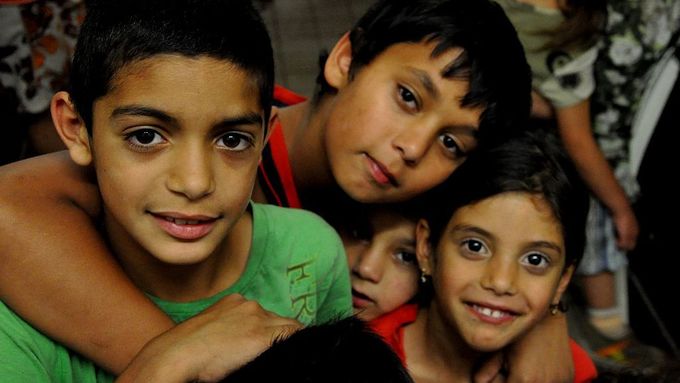Prague - The Czech government will have to spend as much as CZK 18bil (EUR 732mil) every year for the next three years if it wants to end the segregation of Roma children in Czech schools - something the Czech Republic is strongly criticized for by European and international institutions.
The figures are an estimate made by the Agency for Social Inclusion, a government-aligned organization. The agency has produced a document called "Strategy for Fighting Social Exclusion" that was eventually adopted by the government. The document outlines what needs to be done about the pressing and complex problem in the following years.
The agency's director Martin Šimáček said that the lower limit of the necessary investment is CZK 9.5bil every year, the upper limit CZK 18bil.
Read more: PM links racial unrest to generous welfare policies
Read more: Anti-Roma riots spread in Czech Republic raising fears
According to statistics, children from poorest families - mostly of Roma origin - rarely finish primary education in the Czech Republic. Their attendance of secondary schools is even more marginal.
This year, the Czech Ministry of Education's budget is CZK 137bil. This means that the additional expenses needed to end the segregation would represent roughly between 5 and 15 percent of the ministry's budget.
Education Minister Josef Dobeš believes that due to the recent explosive situation in the Šluknov area, the government will provide the necessary resources. "The government needs to set its priorities," he said.
The government adopted the agency's plan two weeks ago, amid intensifying social and racial conflict in the underdeveloped area in Northern Bohemia mentioned by Dobeš. Recently, anti-Roma racism and violence has become a problem in many Eastern European countries, most recently in Bulgaria.
Read more: Situation gets critical in crime-ridden Czech town
Read more: George Soros criticizes Czech govt over Roma issue
The document criticizes what it calls a "parallel education system" that produces segregation. The parallel system consists of so-called "special schools" for children with light mental defects. However, Roma children often end up in these schools, even though they are able to attend "normal" primary schools.
The agency believes that billions invested in the education system would enable to abolish "special" schools until 2015 and allow children from socially excluded communities to attend "normal" primary schools. The money would enable schools to lower the number of students per class and to hire assistants to help teachers.
Viktor Piorecký, an expert on education from the Agency for Social Inclusion, said that today's investment of tens of billions of taxpayers' money will help to save hundreds of millions in the future that would otherwise have to be spent on problems linked to the deepening social exclusion.
According to available data, up to 40 percent of children from socially excluded communities will not finish their primary education, and only 5 percent of them will complete secondary education. This, the agency stresses, creates a vicious circle of poverty.
Both experts and Dobeš also stress the importance of pre-school education of Roma children.






